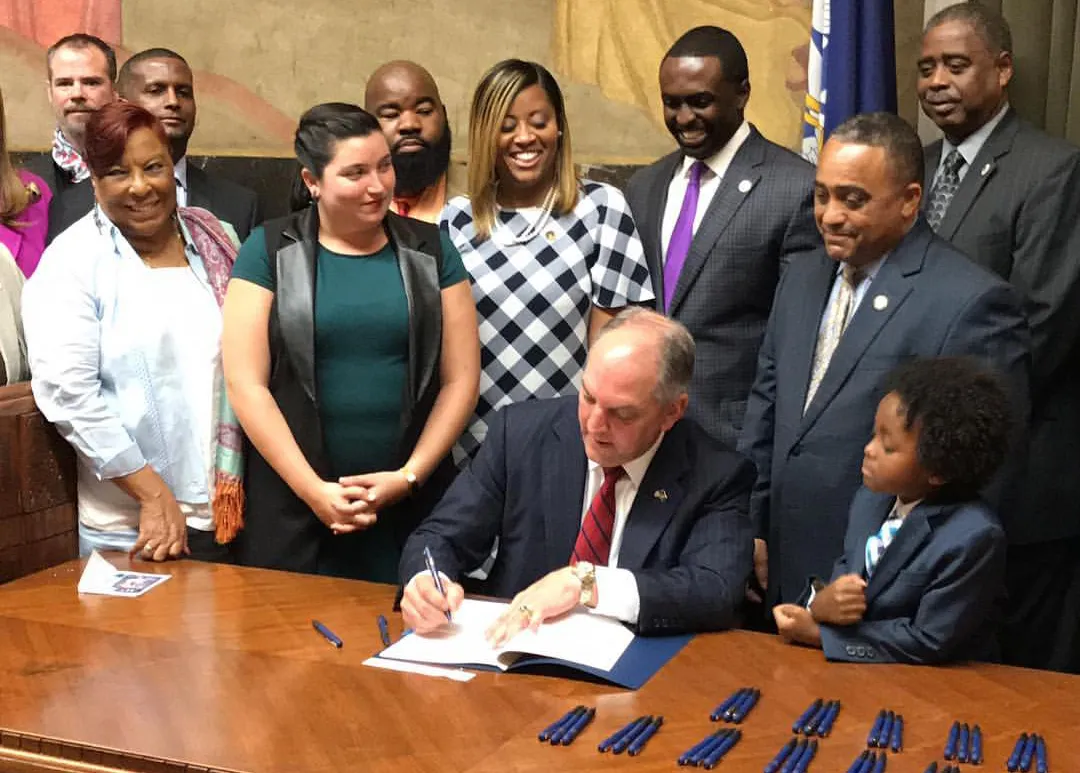
According to the American Civil Liberties Union (ACLU), women are the fastest growing population in the criminal justice system, their numbers increasing at a rate almost double that of men since 1985. In addition, the ACLU reports that two thirds of women in state prisons have children that are minors, and more than 1.5 million children in the U.S. have a parent in prison.
In 2015, Annie Phoenix began her doctoral studies in the City, Culture, and Community (CCC) Program, a collaborative doctoral program of Tulane’s Schools of Liberal Arts, Social Work, and Architecture, to address these statistics. Before enrolling in the CCC Program, Phoenix was teaching in public schools in Louisiana. “I felt like I wasn’t making the impact I wanted to make,” expressed Phoenix. She applied to the Ph.D. program “as a way to transition my life to be more about the issues that I wanted to address—I wanted to explore incarceration more in depth and had always been interested in gender and women specifically. But I was thinking about it from the perspective of my students and the families I had been working with as a teacher, and how incarceration was affecting youth.”

Shortly after beginning the CCC program, Phoenix attended a multitude of community events about incarceration and met Syrita Steib. Together, Phoenix and Steib co-founded the New Orleans-based organization Operation Restoration with a vision to focus on educational initiatives, policy changes, and social services for women and children affected by incarceration. She began her work in the community teaching ten women in the inaugural iteration of the Women FIRST Clinic, a GED program for women who have been incarcerated facilitated by Operation Restoration in collaboration with New Orleans nonprofit Women with a Vision, which receives funding from Tulane’s Newcomb Institute and Phyllis M. Taylor Center for Social Innovation and Design Thinking.
Today, the Women FIRST Clinic is thriving and has served more than 140 women, and Operation Restoration has grown to serve individuals across the country through their programs and policy work. As the organization’s Policy Director, Phoenix works with Steib and lawmakers to enact laws that help women and children survive in existing systems, and more importantly, change those systems. Over the course of four years, Operation Restoration has facilitated bills such as LA HSR 2, a Bill of Rights for Children with Incarcerated Parents; LA Act 392, the Dignity for Incarcerated Women Act; and LA HCR 27, the Louisiana Task Force on Women’s Incarceration, among others. Currently, their bill to ban the box on public college and university applications asking if you have been incarcerated has been enacted in Louisiana and four other states, and over the next two years, 15 states will introduce bills to remove this criminal history question. These bills not only fight for human rights, such as helping supply women in prison with basic needs like sanitary products and soap, but also strive to increase access to education so formerly incarcerated women can attend college and secure meaningful work and safe housing to support themselves and their families.
In a recent interview with Yale Law School, Steib explained, “Women coming out of prison need everything. It goes from basic things like underwear and a toothbrush to connections to systems of higher education, opportunities to heal from trauma and resources to reconnect with family. And more importantly, they need other women who have been through the same experience and can help them walk through their journeys.” Steib was sentenced to prison for 120 months at the age of 19. Since her release she has championed the strength of women and their families, working to address humanitarian inadequacies both in criminal justice systems and beyond. “It’s not enough to be a resource provider, the most effective thing is to walk with somebody and say ‘I’ve done this walk before, and I know what this feels like.’”
Operation Restoration employs thirteen individuals that all identify as women, a majority of whom have been incarcerated. Approximately one third of Operation Restoration’s programs are rooted in education, from their Women FIRST Program, to the College-in-Prison program they offer in partnership with Tulane University’s School of Professional Advancement and Newcomb Institute, and a vocation program for incarcerated women that helps equip them with tools for job placement upon release from their sentencing. The organization also offers social services such as The Closet, which provides clothing and hygiene products to women at no cost; Hope House, a safe, transitional housing program for women returning home after incarceration; and the Rapid Response program, which supports clients with rent, utilities, court costs, transportation costs, and other expenses that women incur when establishing stable housing and employment, among others. This year, the growing organization also began expanding their services to women experiencing immigration detention, which is escalating at a high rate in Louisiana.
“I think the reason why Operation Restoration is effective in policy work is because we do service work and we know the issues very intimately,” explains Phoenix. “The fact that we do policy work helps us connect folks that are going through issues with services. Providing resources is necessary; but you can’t put band-aids on gaping wounds. That increases your chances of becoming complicit in the issue, when we really need to be changing laws.” Through her role as a doctoral candidate in Tulane’s CCC program, Phoenix is able to not only research and enact policy changes, but also reflect on and write about her findings, the policies, and their effects for her dissertation. Furthermore, the types of classes she has been able to enroll in through the program—from public health to sociology—has allowed her to research at a higher level, ethically engage in research, and bring a multifaceted approach to issues she cares about deeply.

